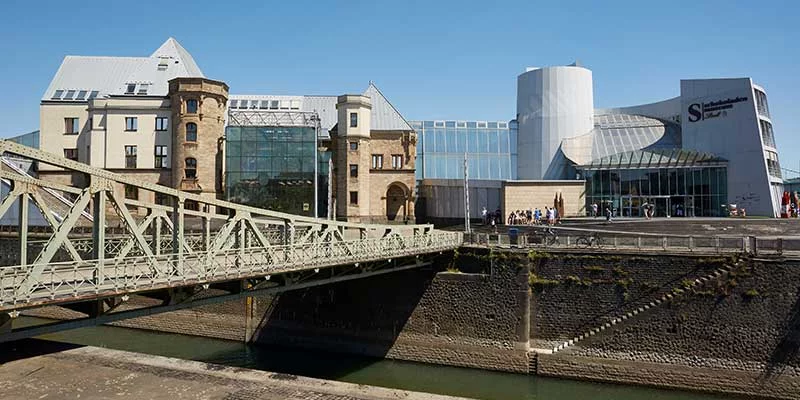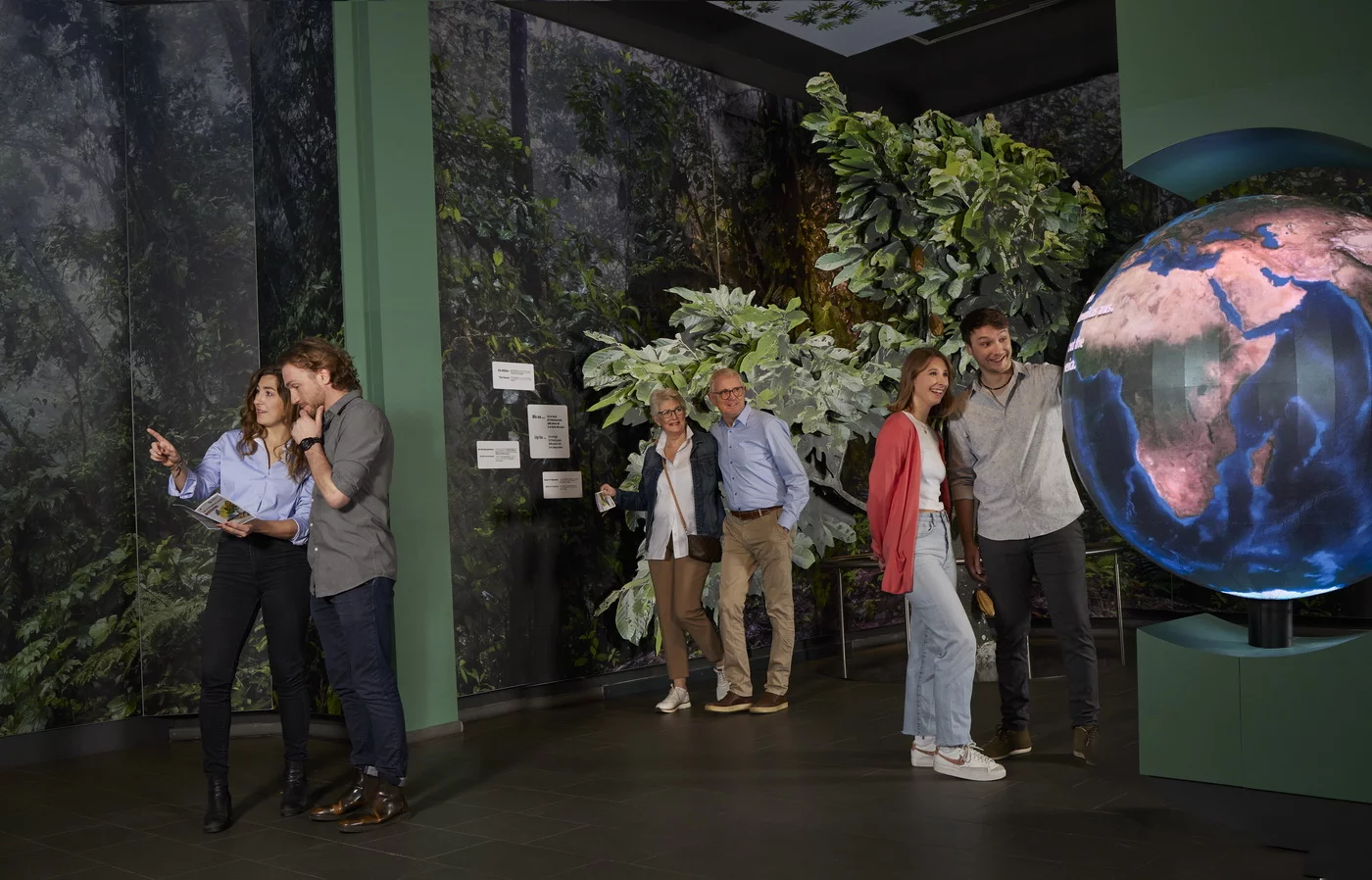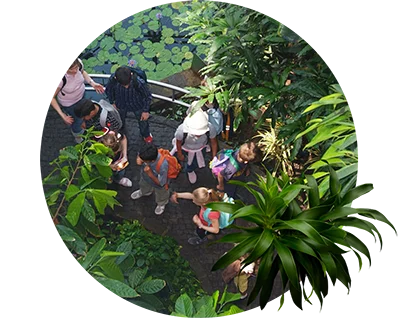
Sustainability activities
What are SDGs?
In the fall of 2015, the United Nations adopted a global sustainability agenda. The aim of the 2030 Agenda is to create a peaceful and sustainable society. At the heart of the agreement are the 17 Sustainable Development Goals (SDGs), which list the areas in which sustainable development must be strengthened and anchored. These include, for example, "No poverty", "Decent work and economic growth", "Sustainable consumption and production" and "Climate action".
Quality education
Of particular importance is the goal of "Quality education", which is the basis for achieving all other goals. The aim of Education for Sustainable Development (ESD) is to provide information about economic, ecological and social interrelationships. This should enable people to make responsible decisions and act responsibly. Education for sustainable development is an integral part of the museum's mission statement and the basis of our educational work. In our educational programs and exhibitions, our museum guests are informed about the working and living conditions of cocoa farmers. We explain the ecological consequences of cocoa cultivation and the still unsolved problem of exploitative child labor.
International conference 2025
The Chocolate Museum is organizing the conference "Price chaos on the cocoa market - conflicts of interest - room for change?" together with the "SÜDWIND Institute".
The price of cocoa has remained relatively stable for more than 10 years. Full stocks, reliable harvest forecasts and low prices did not cause nervousness, even when cocoa was bought in Ghana and Côte d'Ivoire that had not even grown on the trees yet. A below-average harvest in 2022/23 was manageable - the next year would certainly make up for it! But the 2023/24 harvest was also unexpectedly poor in both Ghana and Côte d'Ivoire. Ultimately, the global cocoa harvest was 11% below the previous year's level. The markets reacted nervously and the price rose - by 100, 200, even 300 percent. The inflation-adjusted price had not been this high for decades. The chaotic price development is making work in the industry more difficult. Is this the new reality - or are we only seeing one side of the coin? What future scenarios are possible?
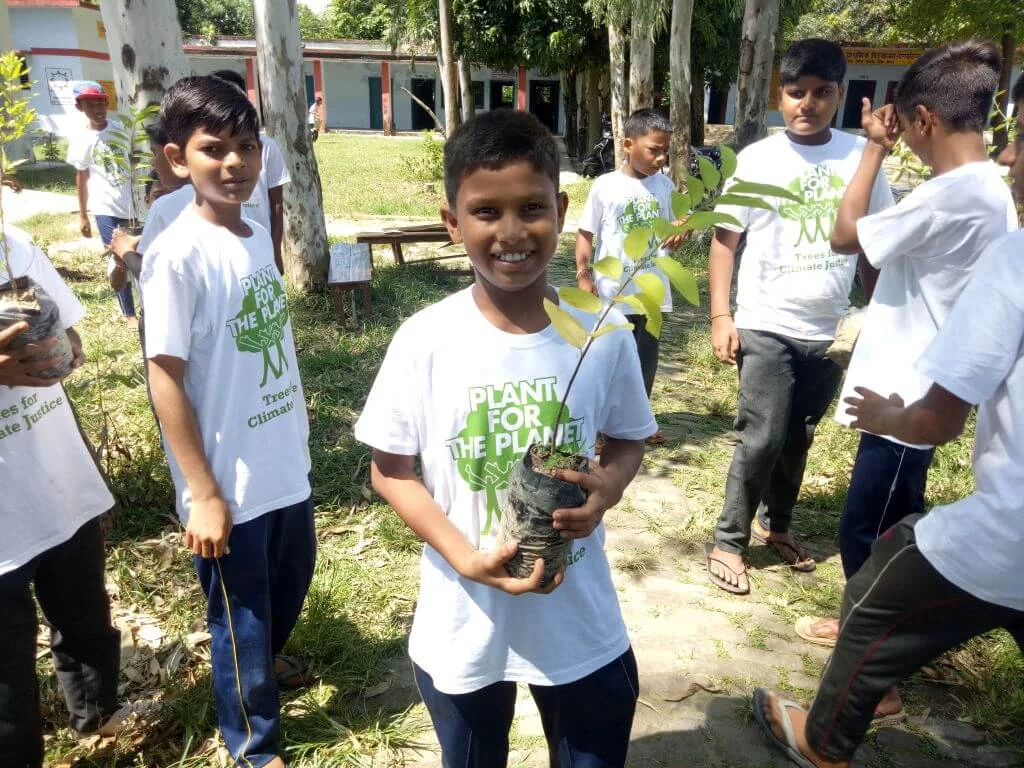
Cooperation with Plant-for-the-Planet
The Chocolate Museum has a close partnership with the Plant-for-the-Planet foundation, which has set itself the goal of combating the climate crisis by planting trees. We support this measure by planting trees on the Yucatan Peninsula in Mexico every year. In addition, the Chocolate Museum and Plant-for-the-Planet organize all-day academies where children are trained as ambassadors for climate justice.
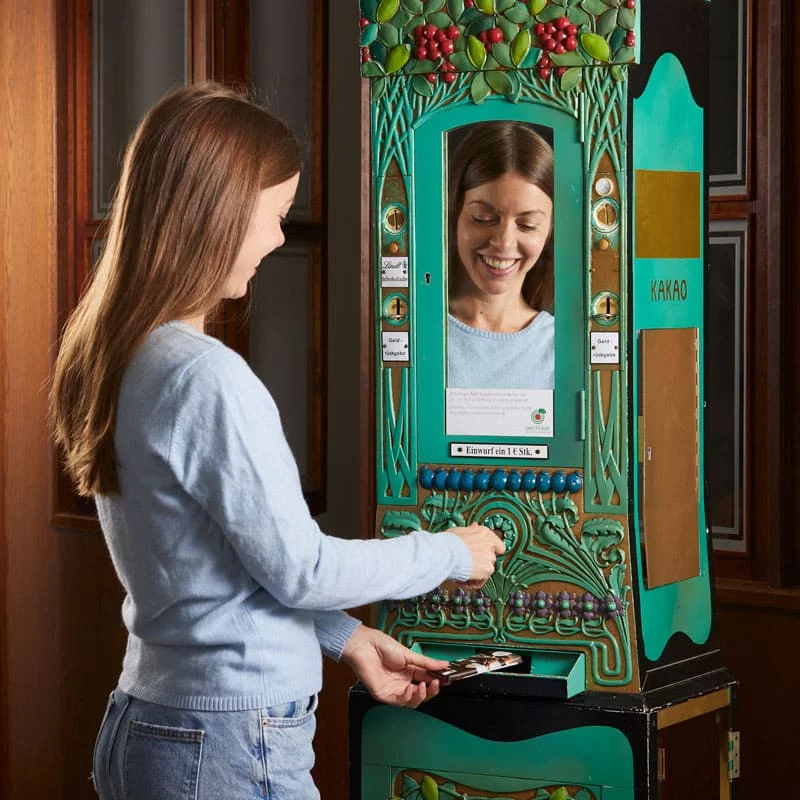
Tropical Forest Foundation OroVerde
The Chocolate Museum has been cooperating with the OroVerde Tropical Forest Foundation in Bonn for many years. Since 2012, the Chocolate Museum has supported the foundation's work by selling chocolate from a "historic" chocolate vending machine in the cultural history exhibition. Since then, the Chocolate Museum has donated over 40,000 euros to OroVerde's work. The donations are currently being used for the "Organic cocoa from the rainforest" project of the OroVerde tropical forest foundation in Guatemala. New rainforest is being created as part of planting campaigns with small farmers. Organic cocoa and other foodstuffs are planted in the shade of these trees. The smallholders are also trained in organic farming methods. This enables them to produce more healthy food on less land and maintain soil fertility in the long term. The local people benefit directly from the newly created rainforest, as they can earn a small income by selling the products - and the valuable raw material for organic chocolate is also produced. After several years of work, the first rainforest chocolate made from the cocoa beans of small farmers in Guatemala is now available to buy, produced in the Georgia Ramon chocolate factory.
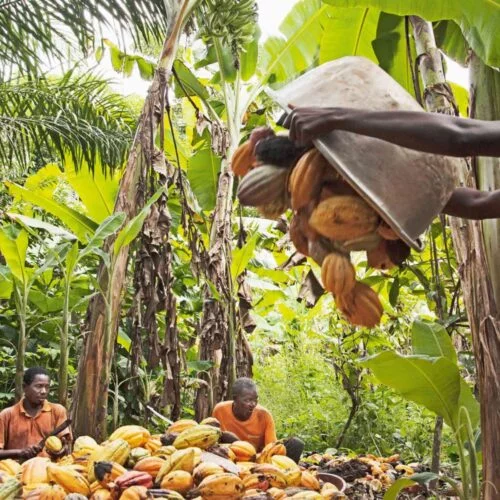
Sustainable Cocoa Forum
Since 2012, the Chocolate Museum has been a member of the German Initiative on Sustainable Cocoa, an association of federal ministries, companies in the confectionery industry, the retail sector and civil society. Together, as a multi-stakeholder initiative, they pursue the goal of improving the living conditions of cocoa farmers and their families and increasing the cultivation and marketing of cocoa certified according to sustainability standards. To this end, the members of the Forum work closely with the governments of cocoa-producing countries. A central goal of the Forum is to improve the living conditions of cocoa farmers and their families and to secure their livelihoods. The Chocolate Museum takes part in the ongoing discussion by participating in the Forum's working groups. In addition, we support the Forum's educational work by providing expert advice and organizing educational events.

